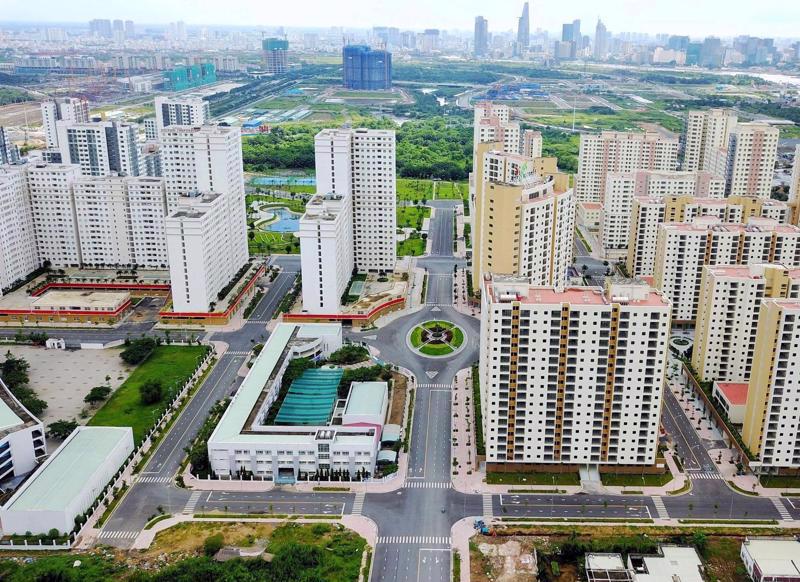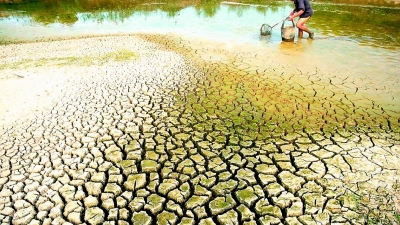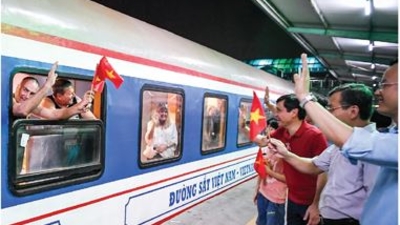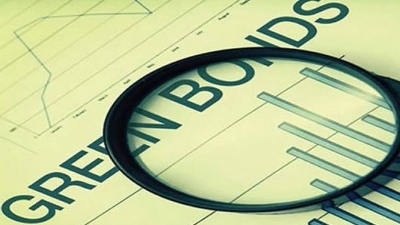The Land Law 2024 is set to come into effect on August 1, introducing several significant amendments, with a key focus on extending property ownership rights to overseas Vietnamese. Under Clauses No. 3 and 6 in Article No. 4, concerning “Land Users”, the Law states that individuals eligible for land allocation, land leasing, and acknowledgment of land use rights include those residing domestically, Vietnamese citizens living overseas, and individuals of Vietnamese origin settled abroad. They must demonstrate their intentions towards stable land use, meet requirements for obtaining land use certificates, and claim ownership rights to property associated with land. This category encompasses individuals residing domestically, Vietnamese citizens living abroad, and Vietnamese expatriates.
Attracting remittances
The newly-established legal framework has paved the way for investment by overseas Vietnamese. Broadening participation in real estate transactions also helps bring in additional remittances, which together with FDI are a vital source of foreign capital for Vietnam.
According to the State Commission for Overseas Vietnamese Affairs, as of 2023 there were approximately 6 million Vietnamese individuals residing and working in over 130 countries and territories around the world, 80 per cent of whom are in developed countries. This figure has continually increased since 2015, when there were only 4.5 million such individuals in 109 countries and territories. Data from the Ministry of Labor, Invalids and Social Affairs also indicates that there are 650,000 Vietnamese workers actively engaged in employment in 40 countries and territories globally, representing a promising resource for the country’s real estate market.
Figures compiled by the Vietnam Association of Realtors (VARS) reveal that remittances to Vietnam have consistently put the country among the top 10 recipients over the past decade. Remittances have also consistently been among the top 3 highest in the Asia-Pacific region. From 1993 to the end of 2022, they totaled $190 billion, nearly matching the volume of disbursed FDI during the same timeframe. Remittances to Vietnam last year totaled around $16 billion, for a notable 32 per cent increase against 2022. It has been estimated that approximately 25 per cent of annual remittances are directed towards investments in the real estate market.
According to Mr. Nguyen Van Dinh, Chairman of VARS, reforms in the Land Law reflect an appropriate perspective in line with international trends and offer significant benefits. The influx of funds will serve as crucial support for the real estate market for the foreseeable future, especially considering the rising demand for capital among many real estate companies.
Ms. Nguyen Viet Trieu, representing the Vietnamese Association in Europe, told a recent event that, in the past, overseas Vietnamese often had to rely on family members to hold property in Vietnam in the latter’s name, due to concerns about complicated procedures. However, the new regulations for the Land Law will make it easier for overseas Vietnamese to own property in Vietnam. This represents a significant legal advancement, with far-reaching implications for various aspects of the lives and businesses of overseas Vietnamese.
“There is a growing number of Vietnamese nationals living abroad nearing retirement age and considering returning to Vietnam to settle,” she said. “Additionally, some investors of Vietnamese origin are eager to engage in the domestic real estate market given the opportunities on offer. Hence, the land access policies outlined in the Land Law 2024 are more aligned with the aspirations of overseas Vietnamese. They serve to bolster confidence and optimism regarding the increased inflow of remittances and investments from overseas Vietnamese, thus contributing to the country’s socio-economic development. The attraction of more foreign funds will serve as a beneficial source of capital for society.”
Likewise, a representative from the KIS Vietnam Securities Corporation observed that Vietnamese culture promotes mutual support, leading to overseas Vietnamese regularly sending money to help relatives in Vietnam, despite their own economic challenges. However, increasing remittances to Vietnam also signifies a desire to expand investment and business ventures, including real estate. This is due to Vietnam’s stable political environment, improving macro-economic conditions, and rapid GDP growth. The ongoing enhancement of the legal framework also encourages overseas Vietnamese to invest, helping with economic recovery.
According to Mr. Dinh, rising housing prices in certain countries and the tightening of immigration regulations around the world further drives up demand for property ownership in Vietnam. Luxurious villas are currently being developed in major cities to address residential needs, while real estate products catering to tourism and leisure, equipped with a variety of amenities for relaxation, rentals, or both, are in demand due to the significant number of overseas Vietnamese returning to Vietnam for retirement. These properties, considered to have limited liquidity and a selective clientele, are preferred segments that align with the financial capabilities of overseas Vietnamese.
Market future
To sustain the robust flow of remittances, Mr. Dinh suggested that governmental bodies invest in enhancing transportation, communications infrastructure, and various public services. Introducing favorable tax policies, such as tax reductions or exemptions for Vietnamese expatriates investing in real estate, is also crucial, as is ensuring transparency and comprehensibility in real estate-related information and laws while safeguarding the rights of investors, including Vietnamese expatriates.
For real estate enterprises, it is imperative to conduct thorough research and develop real estate projects that adhere to high standards in design, construction quality, and amenities; clearly delineate customer profiles and leverage diverse communication channels to promote real estate projects; facilitate legal procedures, taxes, and matters related to real estate transactions; collaborate with reputable real estate agents and brokers within the overseas Vietnamese community; and offer comprehensive post-sales support services.
According to Mr. David Jackson, CEO of Avison Young, remittances may not immediately flood into Vietnam’s housing market upon the enactment of the Law in July. There is typically a lag between legal changes and their practical implementation, requiring that individuals conduct thorough research and deliberation before committing to invest. However, in the long run, the involvement of overseas Vietnamese investors in both primary and secondary markets will introduce fresh capital streams, invigorating buying and investment activities. With the real estate market embarking on a new cycle, numerous investors have recognized the potential presented by the ability of overseas Vietnamese to purchase homes and enjoy full ownership rights akin to domestic citizens. Thus, strategic investments made at opportune moments stand to yield favorable liquidity as they anticipate the significant influx of remittances.
Meanwhile, Mr. Matthew Powell, Director of Savills Hanoi, believes that alterations to legal regulations are poised to catalyze the advancement of Vietnam’s real estate market. The market has already been drawing interest from a multitude of foreign investors, and the expansion of land ownership rights to overseas Vietnamese will provide additional impetus to growth.
However, the decision of overseas Vietnamese to invest in real estate still hinges on various factors, including the location and the country they currently live in. Cities like Prague, Paris, and London, or urban areas in the US and Australia, among others, may also pique the interest of overseas Vietnamese, depending on their investment criteria and personal preferences. Purchase appeal also often relies on the reputation and branding of the real estate project, with established projects more readily catching the eye of high-net-worth investors.
Nonetheless, in this landscape, Vietnam’s real estate market remains an enticing destination not only for overseas Vietnamese but also for international investors. It presents numerous new opportunities and potential for the country’s economic growth. The substantial flow of remittances and rising interest from wealthy individuals about investing in Vietnamese real estate will, however, present both prospects and challenges for the market.









 Google translate
Google translate